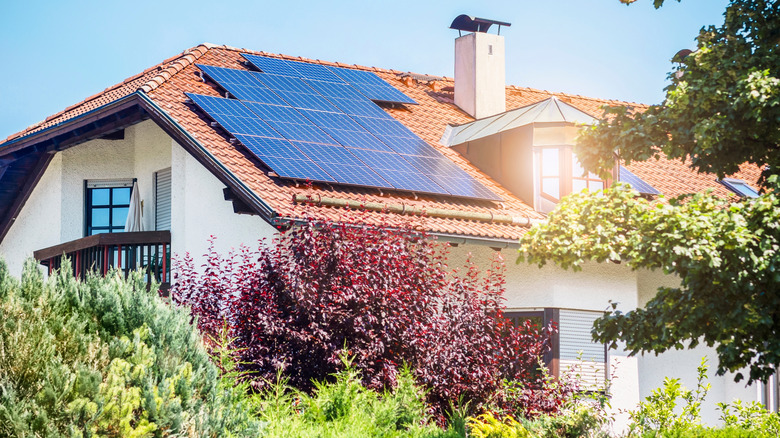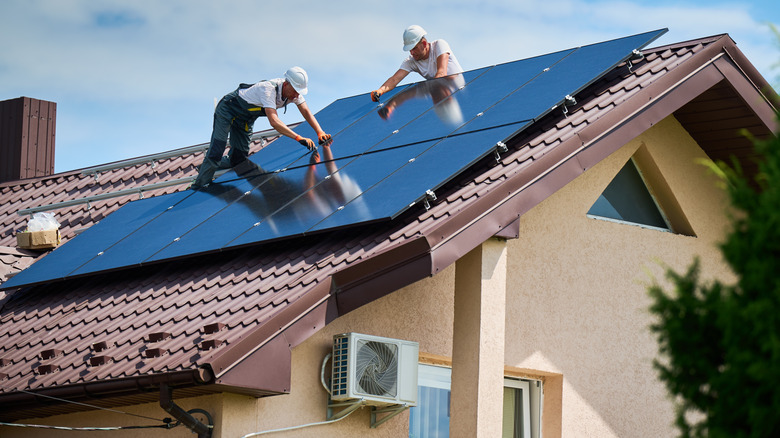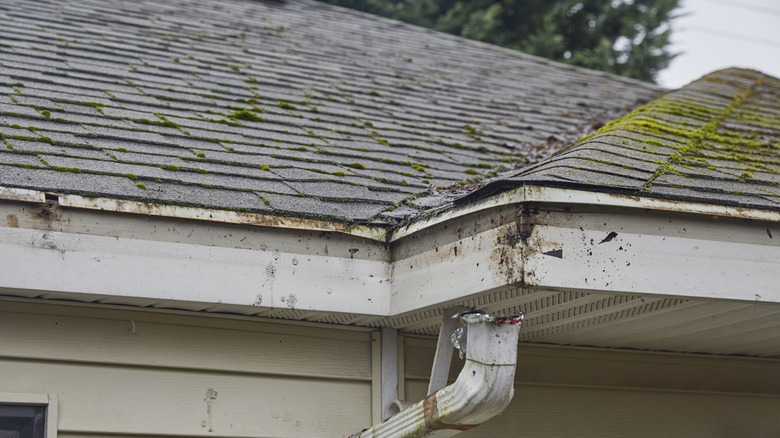What To Know Before Installing Solar Panels On Your Rental Property
More and more people are making the switch to renewable energy by installing solar panels on their roofs. It's a big step toward reducing your carbon footprint, since solar energy, and the power plants that support it, don't directly contribute to air pollution or greenhouse gas emissions like traditional energy sources do. But what if you're living in a rental and want to try solar? While there are certainly benefits to going solar in a rental home, there are also some downsides that should be carefully considered before moving forward.
The first thing you'll need to consider is whether your landlord will allow you to install solar panels. Sure, the panels can increase a home's value, much like a kitchen or bathroom upgrade, but they're considered a major modification. And since the property isn't yours, you'll need your landlord's permission before making any changes. Even if you get their approval, the next (and possibly biggest) factor to consider is the cost of installation, as you'll likely be fully, or at least partially, responsible for covering it.
According to the Center for Sustainable Energy, a 5-kilowatt solar power system typically costs between $13,500 and $16,250 to install. While you may convince your landlord to invest in solar and help with the expense, chances are they'll expect you to shoulder most of the cost. If you are permitted to install solar panels on a rental, the good news is they can be removed and reinstalled if you move. However, this will likely be at your own expense and will require hiring a solar professional, as both installation and removal should be handled by an expert.
You may have insurance concerns with solar panels on a rental
Protection for your solar panels as a renter is another consideration. Typically, homeowners insurance extends to roof-mounted solar panels since they become part of the structure. However, homeowners insurance is not something you, as a renter, can obtain. You're only able to take out a renter's insurance policy, which covers your personal belongings but not the physical structure of the home. You may need to obtain a standalone policy if you want the panels protected, which could mean additional costs. Because of this, it's a good idea to have your landlord speak with their insurance agent to understand the financial implications of installing solar panels and who would cover any additional expenses.
If your landlord agrees to lease the solar panels, the leasing company would typically provide the necessary insurance. The good news is that this arrangement could provide protection for the solar panels without any additional costs beyond the leasing fees. Leasing a solar energy system still allows you to take advantage of lower electricity bills and a reduced environmental impact without the hefty upfront costs. However, keep in mind that leased systems are not eligible for federal solar tax credits, which are only available to those who purchase their solar panels outright.
Certain rooftops are not suitable for solar panels
The size, shape, age, and location of a roof factor into whether it's suitable for solar panel installation. Older roofs may not be equipped to handle the weight of solar panels, and location plays a major role as foliage hanging over the roof could impact the panels' ability to function. According to the U.S. Department of Energy, solar panels work well on a south-facing roof slope ranging from 15 and 40 degrees. A solar installer can evaluate your roof to determine if it can handle solar panels.
In addition to the roof's condition and location, we also can't overlook the potential need for permitting and inspections. Before solar panels can be installed, the local government typically requires a permit, usually obtained by a licensed installer or contractor. Once complete, an inspection then needs to happen to ensure the system is up to code. After that, the utility provider must approve the system before it can be connected to the grid. Since every county has its own rules and regulations, it's important to research your local requirements before getting started. Clearly, it's a lengthy process but one that can't be skipped.
To make things even trickier, if the rental home is part of a homeowners association (HOA), the landlord will likely need to obtain HOA approval before you can move forward with a contractor or installer. Without that approval, the HOA could impose fines or force you to remove the panels. Needless to say, there's a lot to consider when it comes to installing solar panels on a rental — and plenty to be discussed with your landlord.


